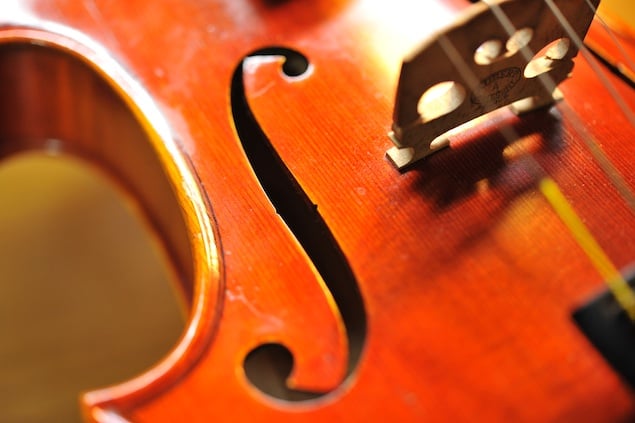Can’t-Miss Shows
This year marks the 150th anniversary of the birth of
Claude Debussy, and to celebrate, the National
Philharmonic
is dedicating two concerts to the work of the French master–the
first consisting of some of the composer’s most famous works,
the second devoted to an intriguing rarity. May 5, conductor
Piotr Gajewski will conduct the “Prelude to the Afternoon of a Faun,” the “Rhapsody for Clarinet and Orchestra” (with soloist
Richard Stoltzman), the “Fantaisie for Piano and Orchestra” (with pianist
Brian Ganz), and “La Mer,” that marvelous evocation of the sea that is perhaps Debussy’s masterpiece. May 19, conductor
Stan Engebretson is joined by vocal soloists
Audrey Elizabeth Luna,
Rosa Lamoreaux,
Linda Maguire, and
Eliot Pfanstiehl in the mystical and mysterious incidental music for
Le Martyre de Saint Sébastian, a work that is hardly ever performed or recorded. Both concerts will be held at the Music Center at Strathmore.
The Dutch composer
Michel van der Aa isn’t only a master of
inventive sound structures (both acoustic and electronic) that convey a
tremendous amount of expression;
he is also a composer ever conscious of the theatrical elements
of performance. His works stretch the bounds of what a recital
or concert can be, with instrumentalists often assuming the
roles of actors. There isn’t a better new music group these days
than the International Contemporary Ensemble (ICE), which will
perform several of van der Aa’s works at the Phillips
Collection
May 10.
Jules Massenet’s opera
Werther, based on Goethe’s 18th-century novel of unrequited love,
The Sorrows of Young Werther, is one of the composer’s most popular works, opulent and tragic and a great vehicle for its lead singers. The opera begins
a run at the Washington National Opera May 12, with
Emmanuel Villaume conducting a production directed by
Chris Alexander. Tenor
Francesco Meli sings the role of the doomed Werther, and mezzo-soprano
Sonia Ganassi appears as his beloved, Charlotte.
It might be hard to get worked up over yet another
performance of Beethoven’s Symphony No. 9–jaded as some of us are. But
on May 26, at the Music Center at Strathmore, the evergreen
Ninth is paired with Anton Bruckner’s transcendent and heavenly
Te Deum, a work written “for the tongues of angels, heaven-blest, chastened hearts, and souls purified in the fire,” as Gustav Mahler
put it.
Peter Oundjian (once upon a time the first
violinist of the Tokyo String Quartet, and now a fine conductor) leads
the Baltimore Symphony
Orchestra and the Baltimore Choral Arts
Society in this demanding and difficult program, with vocal soloists
Joyce El-Khoury,
Mary Phillips,
Brandon Jovanovich, and
Morris Robinson.
Other Highlights
On May 6, pianist
Benjamin Hochman performs works by Jörg Widmann (his
Idyll und Abrund: Six Schubert Reminiscences) and
Franz Schubert (the Sonata D. 850) in what promises to be an intriguing
recital at the Phillips Collection.
Conductor Charles Dutoit leads the Philadelphia
Orchestra, always a treat to hear, on May 11 at the Music Center at
Strathmore,
in a performance sponsored by the Washington Performing Arts
Society. On the program: Claude Debussy’s “Prelude
to the Afternoon of a Faun,” Felix Mendelssohn’s oft-heard
“Violin Concerto” (with soloist
James Ehnes), and Dmitri Shostakovich’s driving, subversive Symphony No. 5.
On May 12, Marin Alsop leads the Baltimore Symphony
Orchestra in two lush, expansive works, at the Music
Center at Strathmore: Serge Rachmaninoff’s ever-popular Piano
Concerto No. 2 (with soloist André Watts) and Edward Elgar’s
Symphony No. 1.
It’s English and French fare at the May 12 performance of the Fairfax Symphony Orchestra at George
Mason University’s Center for the Arts. Music director Christopher Zimmerman leads performances of Henry Purcell’s
Funeral Music of Queen Mary and
The Gordian Knot Untied, Edward Elgar’s
Enigma Variations, Debussy’s
La Mer, and Maurice Ravel’s
Concerto for Left Hand, with pianist Adam Golka.
Pairing the eminent classicist Franz Joseph Haydn and
the Italian composer Ermanno Wolf-Ferrari (famous mostly for some
lighthearted
comic operas) might seem odd–or perhaps inspired. You can judge
for yourself, during two recitals on May 13 and May 20, when
the heralded Raphael Trio will perform a Haydn trio followed by
Wolf-Ferrari trio; at the Phillips
Collection.
Has a contemporary violinist enjoyed a more fruitful and durable career than
Itzhak Perlman? He appears at the Kennedy Center Concert Hall on May 14, along with longtime accompanist
Rohan de Silva, in a recital sponsored by the
Washington Performing Arts Society. Perlman and de Silva
will perform Franz
Schubert’s sunny and virtuosic “Rondo Brilliant,” Johannes
Brahms’s wistful Sonata No. 2, three of Brahms’s “Hungarian Dances,”
and the Sonata No. 2 by Serge Prokofiev, a lyrical work
originally written for the flute.
Pianist
Nelson Freire makes his National Symphony Orchestra debut, May 17 through 19, playing one of the massive works
in the literature: Johannes Brahms’s Piano Concerto No. 2. Guest conductor
Andreas Delfs bookends the concerto with Franz Joseph Haydn’s Symphony No. 83 and a rarity–Kurt Weill’s Symphony No. 2.
Conductor
Günther Herbig leads the Baltimore Symphony
Orchestra May 31 at the Music Center at Strathmore, in
three classic works:
Mozart’s Symphony No. 40, Beethoven’s Piano Concerto No. 3
(with soloist Jonathan Biss), and Franz Schubert’s genial Symphony
No. 6.
The Phillips Camerata performs two piano quintets May
27 at the Phillips Collection: Robert
Schumann’s
famous work in E flat major and Dmitri Shostakovich’s equally
successful (if less-heard) quintet in G minor.
Christoph Eschenbach leads performances of two
warhorses–Richard Strauss’s “Suite from Der Rosenkavalier” and
Beethoven’s Symphony No. 7–with
the National Symphony Orchestra,
May 31 through June 2, and introduces a new work commissioned
by the orchestra: “Blue Blazes” by the young composer Sean
Shepherd.
















